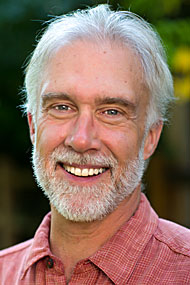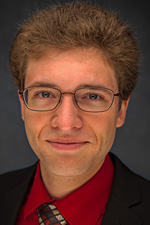Rick Johnson, director of the Idaho Conservation League for more than 20 years, discusses the campaign that led to Congressional protection of a 431-square mile wilderness area last August in a Lawrence University Spoerl Lecture Series address.

Johnson presents “Endless Pressure, Endlessly Applied: Preserving the Boulder-White Clouds Wilderness Area” Thursday, April 28 at 7 p.m. in Thomas Steitz Hall of Science 102. The event is free and open to the public.
A recognized leader in conservation strategy and organizational development, Johnson played a leadership role in a decades-long effort to obtain federal protection for a section of the Boulder and White Cloud Mountains in central Idaho.
Through old-fashioned organizing in a very conservative western state, a state of the art national campaign leveraging the Democratic administration and some well-timed good luck, Johnson was finally able to get Congress’ approval.
Johnson has called wilderness “an incredible statement of optimism.”
“All of us today are concerned about the future – whether the air will be clean to breathe, whether the water will be safe to drink, whether our climate will sustain life,” said Johnson. “Wilderness is a truly optimistic statement that we’re going to pass on this planet for the future and pass on some of the recreation and outdoor experiences that I believe defines our way of life.”
Johnson has served on the boards of the Campaign for America’s Wilderness, Conservation Voters of Idaho, the American Wilderness Coalition, Advocates for the West and Conservation Geography.
His efforts have been recognized with the Secretary’s Honor Award from the U.S. Department of Agriculture in 2014 and the Outstanding Conservation Leadership Award from the Wilburforce Foundation.
The Spoerl Lecture in Science and Society Series, was established in 1999 by Milwaukee-Downer College graduate Barbara Gray Spoerl and her husband, Edward. The lectureship promotes interest and discussion on the role of science and technology in societies worldwide.
About Lawrence University
Founded in 1847, Lawrence University uniquely integrates a college of liberal arts and sciences with a nationally recognized conservatory of music, both devoted exclusively to undergraduate education. It was selected for inclusion in the book “Colleges That Change Lives: 40 Schools That Will Change the Way You Think About College” and Fiske’s Guide to Colleges 2016. Engaged learning, the development of multiple interests and community outreach are central to the Lawrence experience. Lawrence draws its 1,500 students from nearly every state and more than 50 countries.
